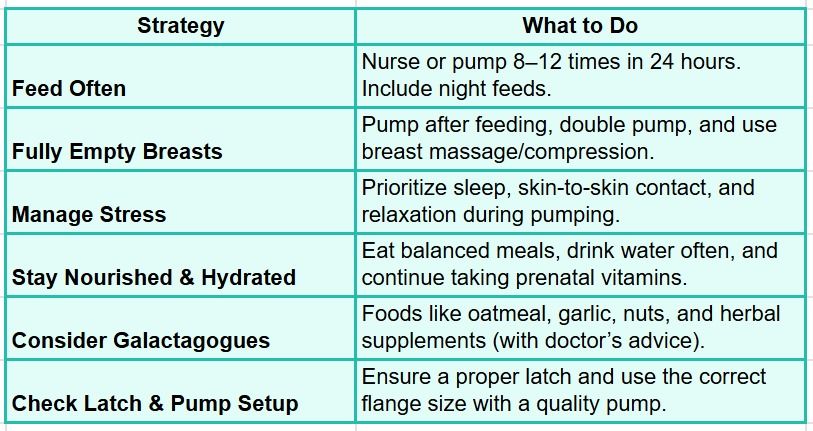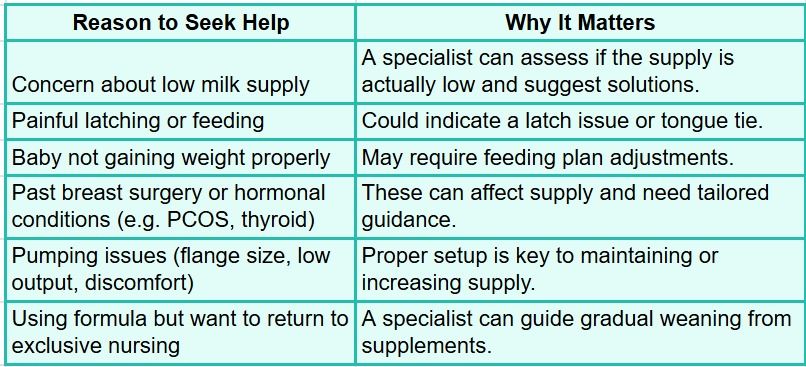How to Increase Breast Milk Supply After Birth: Tips for First-Time Breastfeeding Moms
Worried about your breast milk supply? You’re not alone. Many new moms face this concern in the early days of breastfeeding. The good news is, there are safe and proven strategies to help boost your milk flow.
As a trusted pediatrician in Houston, Cypress, Katy, Spring and New Caney, Pristine Pediatric Clinic supports mothers with expert lactation advice as part of our comprehensive newborn care services to you. Understanding how milk supply works, and what habits help or hurt, can make a big difference in your success. Whether you're exclusively nursing or supplementing, we’re here to guide you every step of the way.
How Milk Supply Works
Milk production begins during the second trimester of pregnancy and continues after birth, based on how often milk is removed from the breasts. This is known as a supply and demand system—the more milk is removed, the more your body produces. In the first two weeks, frequent feeding or pumping is critical. If breasts aren’t emptied regularly, the body may reduce production.
Key tips to increase breastmilk production:
- Nurse or pump often, especially at night when milk-boosting hormones are at their peak.
- Switch sides during feeding to stimulate both breasts.
- Ensure a good latch and complete breast emptying.
Hormones also play a role:
- Oxytocin helps with milk release and is triggered by skin-to-skin contact.
- Cortisol, the stress hormone, can lower the supply. Rest and support are vital.
At Pristine Pediatric Clinic, we’re here to help you navigate every step of your breastfeeding journey.
What Are Some Proven Ways to Improve Breast Milk Supply?
If you're worried about milk supply, you're not alone, and the good news is, there are several proven, natural ways to encourage more milk production. At Pristine Pediatric Clinic, we recommend a combination of frequent milk removal, stress management, a balanced diet, and professional support.
Below is a quick-reference table of effective strategies:

What Are Some Habits That I Should Avoid?
Some everyday habits can unintentionally reduce your breast milk supply, especially during the early weeks of nursing. By being aware of them, you can better support your breastfeeding journey.
Avoid the following:
- High stress and lack of rest – Stress increases cortisol, which can interfere with milk letdown and supply.
- Not eating or drinking enough – Breastfeeding burns extra calories. Skipping meals or being dehydrated may reduce milk production.
- Supplementing too early – It’s well established that giving formula or pacifiers before breastfeeding can reduce demand at the breast.
- Improper pumping – Using the wrong flange size, skipping night pumps, or not emptying breasts fully may send the wrong signal to your body.
- Smoking, alcohol, or certain medications – These can all interfere with hormone levels and milk production.
Consulting a pediatrician in Houston is especially helpful if you're unsure which medications are safe while breastfeeding. At Pristine, our team of experienced pediatricians offers guidance that supports both mom and baby.
When to See a Lactation Specialist
Breastfeeding can be a beautiful experience, but it doesn’t always start smoothly. A lactation consultant or infant feeding specialist can offer expert help to make your breastfeeding journey more successful and comfortable.
You should consider seeing a lactation specialist if you're facing any of the following:

Our pediatrician team in Houston are available to connect you with trusted lactation experts. If you’ve wondered, “What will a pediatric provider do to help with feeding?”—you’ll find the answer here at Pristine. Schedule your visit at Pristines.org/booking
Increasing your milk supply takes time, patience, and the right support. Focus on frequent, complete milk removal, proper nutrition, and managing stress. Avoid habits that reduce supply, and don’t hesitate to seek expert help. Whether you're concerned about latch, output, or your baby’s weight, Pristine Pediatric Clinic in Houston is ready to help. Schedule your baby’s first visit with a Pristine pediatrician today and get the guidance you deserve.
Frequently Asked Questions (FAQs)
Q1. How can I increase my breast milk supply fast? To quickly boost milk supply, breastfeed or pump every 2 hours, including at night. Use a double electric pump for 15 minutes after nursing, apply warm compresses beforehand, and massage your breasts during pumping to enhance flow.
Q2. Which foods help increase breast milk? Foods known to support milk supply include fenugreek seeds, fennel, oats, garlic, cumin, green leafy vegetables, lentils, legumes, and ghee. These can be safely included in a balanced diet to naturally encourage breast milk production.
Q3. What is the 4-4-4 rule for breast milk? The 4-4-4 rule helps remember breast milk storage guidelines: 4 hours at room temperature, 4 days in the refrigerator, and 4 months in the freezer. It’s a simple way to ensure milk stays safe for the baby.
Q4. Will pumping every 2 hours increase milk supply? Yes, pumping every 2 hours stimulates frequent milk removal, signalling the body to produce more. Aim for 8–12 sessions per day, including night pumps, for best results, especially if you’re exclusively pumping or building supply.


